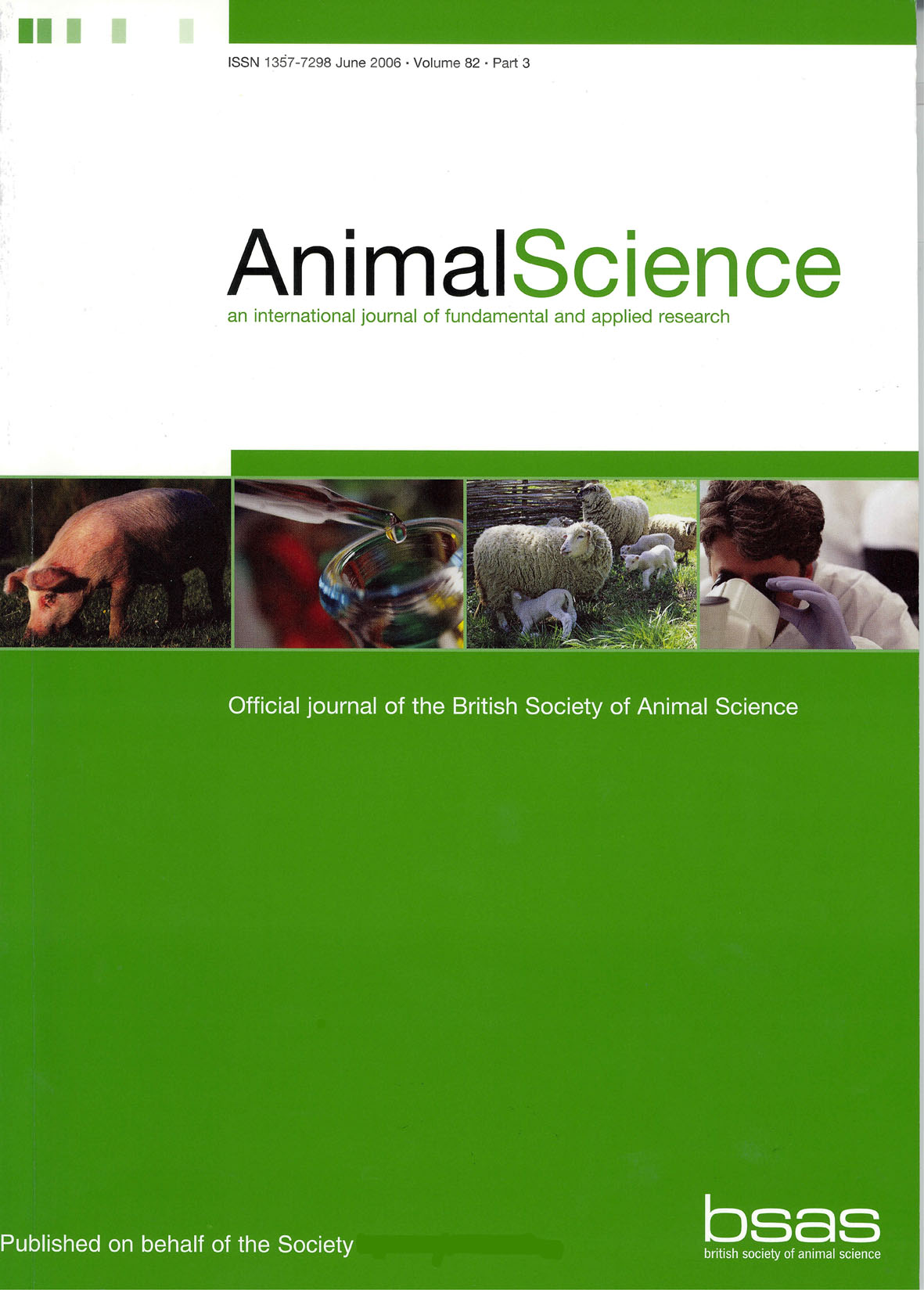Article contents
Influence of social conditions post-puberty on the sexual behaviour of the domestic male pig
Published online by Cambridge University Press: 02 September 2010
Summary
Three groups of four mature boars were housed in individual pens for 3 mo under one of the following social conditions: near ovariectomized female pigs induced into sexual receptivity at 2-week intervals; isolated from female pigs but either with or without visual and physical contact with neighbouring boars. The total number of copulations achieved in six mating tests throughout the period was significantly greater (P<0·01) for the boars housed near sexually receptive females than for those housed in the other two social conditions. For the subsequent 3 mo all boars were housed near sexually receptive females and no significant differences were found between the three groups for total number of copulations.
- Type
- Research Article
- Information
- Copyright
- Copyright © British Society of Animal Science 1977
References
REFERENCES
- 12
- Cited by


